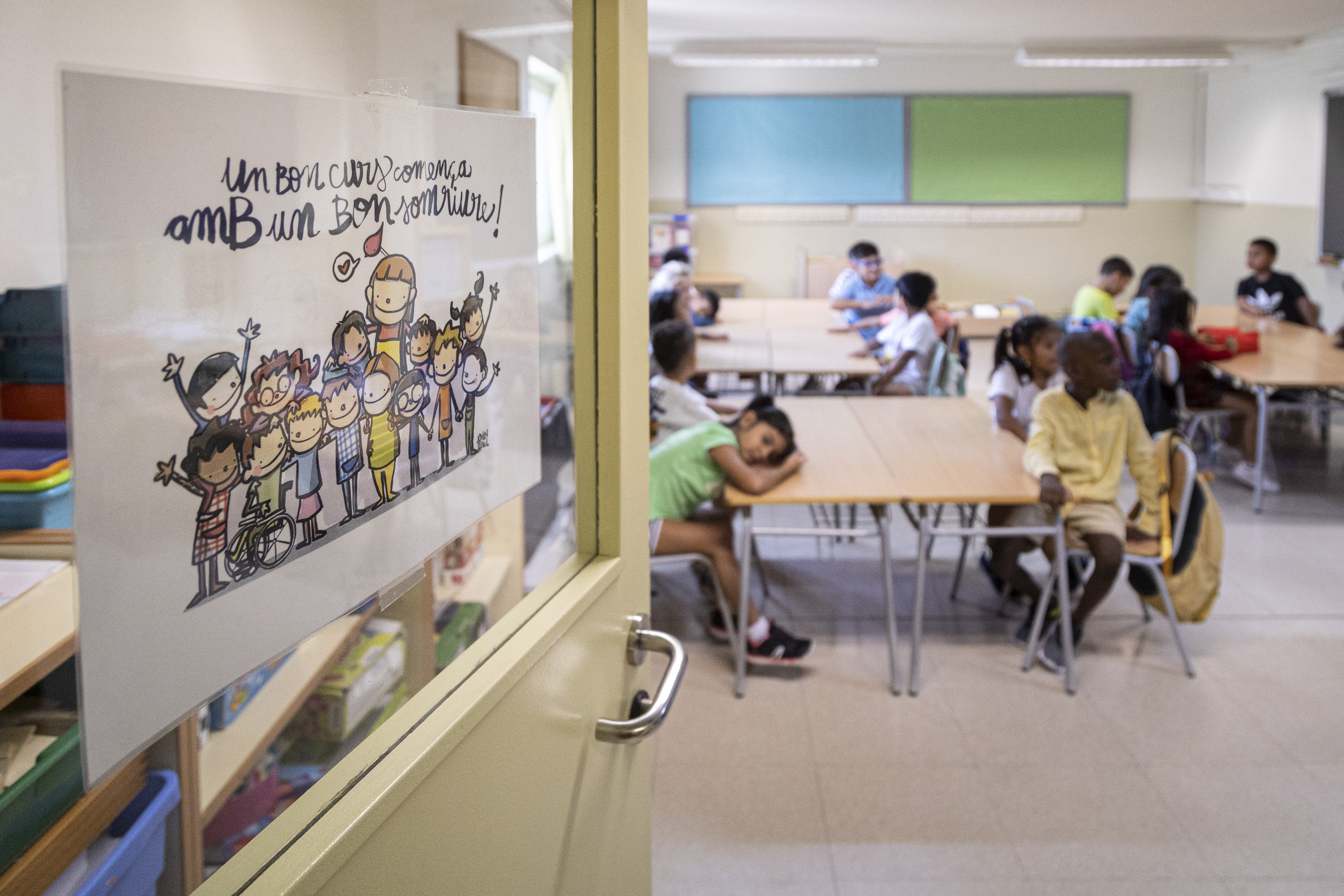The Catalan government reacted this Thursday to the latest resolution on the issue of language use in schools from the Catalan High Court (TSJC), accusing the court of "filibustering" and warning that the new regulatory framework, passed before the summer, makes it "inapplicable" for the court to impose the interim measures it has done, once again, today: maintaining the provisional ruling of a 25% Spanish language quote in the classroom in two Catalan schools. The general secretary of the Catalan education department, Patrícia Gomà, made it very clear that in Catalonia there is a new regulatory framework regarding vehicular and curricular nature of languages in schools, which has been approved by Parliament, and thus the pronouncement by the TSJC is totally out of step with the new law.
So, the Catalan government's interpretation of the resolution by the Catalan High Court is that there is no need to take any action at all and that the two Catalan educational centres affected by the resolution can continue to follow the Catalan language immersion policy. It insisted that, in addition, the TSJC's move generates "discrimination" towards the students affected, since were it applied, they could not be educated in the same way as the rest of Catalan school children.
Gomà explained that the education department was "surprised" by the TSJC decision, since this same court ruled differently this summer: on two occasions, the same court denied language pressure group Association for a Bilingual School's request for the application of the 25% Spanish quota in Catalan schools, arguing that there was a new regulatory framework in Catalonia regarding the use of languages in the educational system. And the ball was, in fact, in the court of Spain's constitutional judges, who have yet to pronounce on the percentages and on the new regulations.
"The TSJC will have to tell us in detail why it departs from its own legal precedent", said the education general secretary, in relation to the appeal that the government will present; she also clarified that the two requests by the pro-Spanish language association had been made when the new regulations were already in force, and that now the TSJC has ruled on requests that had taken place before Parliament protected the place of Catalan in schools through a new law. "They are twisting the arguments and going against what they already said in July", stated Gomà in a media conference within the department.
The TSJC's argument on Catalan and Spanish
In the resolution released today, the new reasoning of the TSJC is that "the minimum use of Spanish agreed as an interim measure is not affected by the prohibition of percentages established in article 2.4 of the [Catalan government's new] decree law". It specifies that the precept establishes "a criterion that governs the development of language plans, for timetabling purposes specific to it, and cannot be extended to the actual number of teaching hours taught in one or another language, which obviously always offers numerical or percentage parameters”. Therefore, the court defends that the new regulations, passed by the Catalan Parliament and government before the summer, "do not generically limit the intensity of the use of Spanish as a curricular and educational language".

